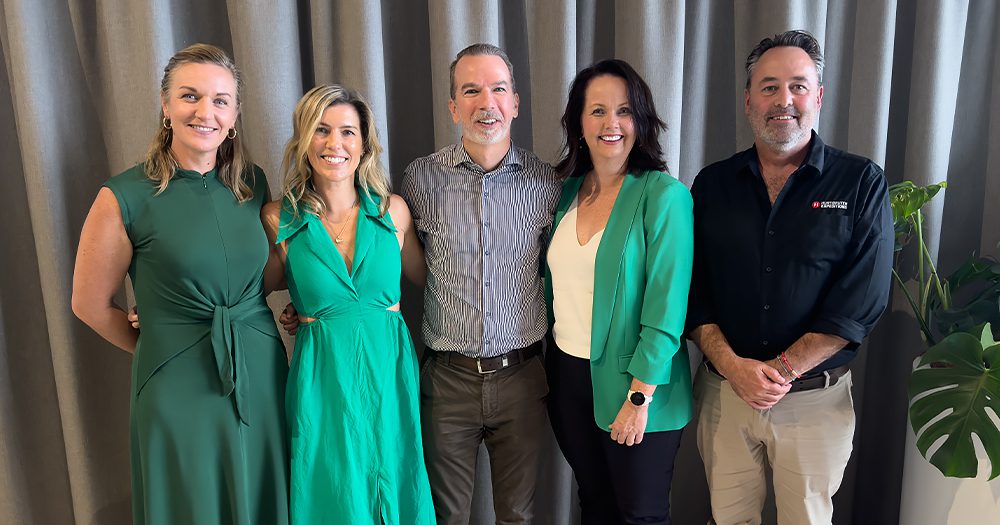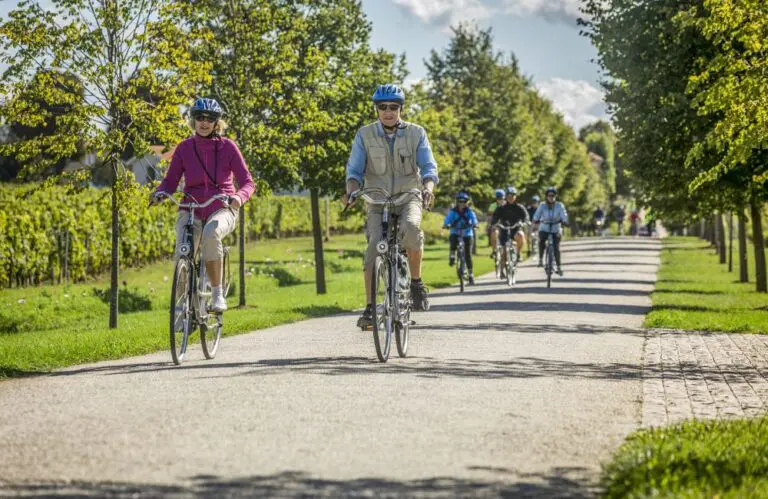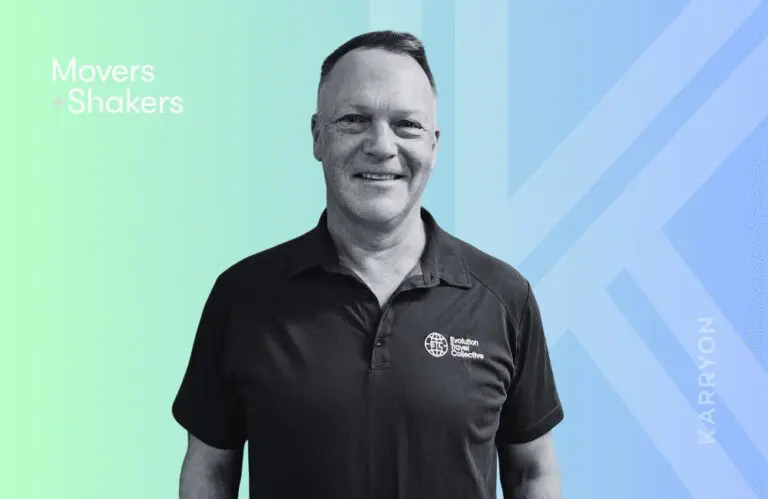The Council of Australian Tour Operators (CATO) inaugural World Earth Day event welcomed 80 travel industry professionals to unite in Brisbane on Friday, 21 April and create a sea of green for good. Karryon’s own Matt Leedham was there to share the eco-conscious camaraderie.
The Earth Day event, held at the Calile Hotel in Brisbane, brought together travel industry members from all sectors to network and discuss the critical subject of the role travel and tourism play in the future sustainability of our planet.
G Adventures was the primary sponsor for the green-themed lunch, with the Italian National Tourist Board and Hurtigruten as supporting sponsors.
Key to the auspicious event was a panel discussion featuring four speakers across the retail, aviation, cruise and tour operator sectors, including Michelle Degenhardt (Flight Centre Travel Group Chief Sustainability Officer), Heidi Hauf (Boeing Regional Sustainability Lead), Damian Perry (Hurtigruten Managing Director APAC) and Toni Ambler (Managing Director TTC Touring Brands).

Moderated by G Adventures Managing Director Oceania and CATO Board Member Sean Martin, the compelling panel covered a wide range of on-trend topics, sharing insights and advocacy tips while frankly spelling out the challenges ahead for the industry.
Engaging the audience with her passion and in-depth knowledge, Boeing’s Regional Sustainability Lead Heidi Hauf shared a deep dive into transforming the world of aviation as it continues to head towards 2050 to meet its net zero emissions targets.
The solution to accelerating a cleaner aviation sector, Ms Hauf suggested, lies in the progressive development of newer, cleaner and more fuel-efficient aircraft coupled with homegrown, sustainable aviation fuel (SAF).
“To simplify what is a really complex and technical environment is to say that it’s difficult right now, but we do have the technology available to us in sustainable aviation fuel, which could reduce emissions by 75 to 100 per cent, and it uses waste products.”
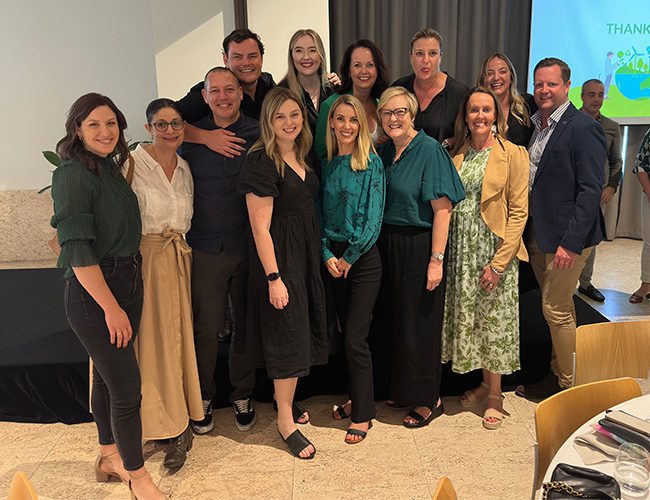
According to Ms Hauf, currently, less than 1 per cent of the world’s jet fuel is being delivered via sustainable aviation fuel right now, which costs three to five times more than jet fuel.
Something Ms Hauf said needs to change urgently, with Australia key to playing a significant role in producing regional biofuel as an economic opportunity.
Ms Hauf went on to say that while only around 6 per cent of the world’s population has still ever flown (a mind-blowing stat in its own right), it is estimated that by 2050, ten million people will be flying yearly.
“Part of the story of aviation sustainability is to open up more accessibility for people to fly. It is a privilege we all take for granted, so we need to continue those social benefits and find a way to decouple emissions and environmental impact,” Ms Hauf said.
Sharing his thoughts on Hurtigruten’s 2050 vision as well as the trailblazing sustainability work the Norwegian adventure travel group has done since its inception in 1932 and the ongoing complexities of today, Managing Director for APAC, Damian Perry, said;
“We believe we have to go on a journey that involves science, technology and activism to promote responsible travel and sustainability and for people to be able to understand it. So that’s part of our journey and where we are, but I can only say it is still difficult.”
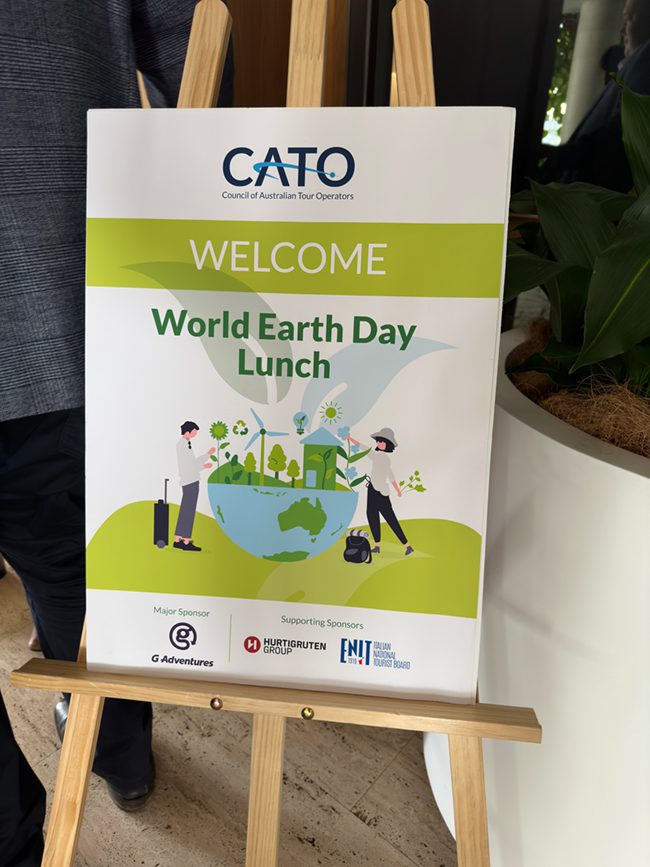
Flight Centre Travel Group Chief Sustainability Officer Michelle Degenhardt echoed the difficulty of transforming mindsets in retail, speaking of the need for a keener focus on community impact and how to educate customers on what it means to be a responsible traveller.
“I think the biggest thing we need to do is simplify sustainability for our customers. Make it easy for them to make good choices and map it out because it does come back to education.”
“We do have responsible travel tips that we share with our customers: reducing your waste, conserving your water, and respecting the local communities and wildlife when you’re travelling.
“There’s a whole raft of things you can do, and they are actually simple,” said Ms Degenhardt.
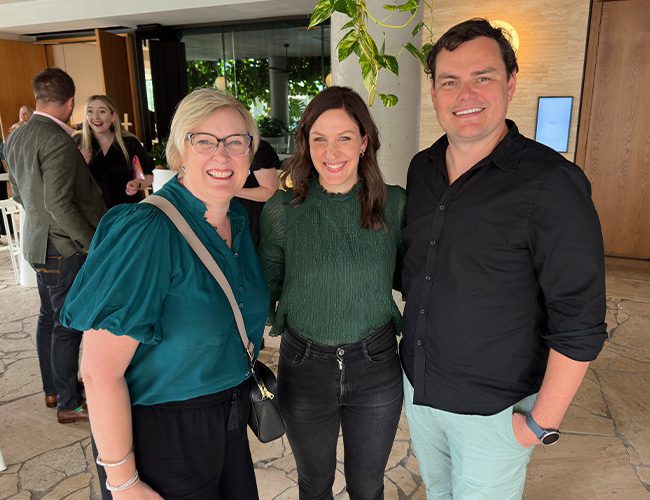
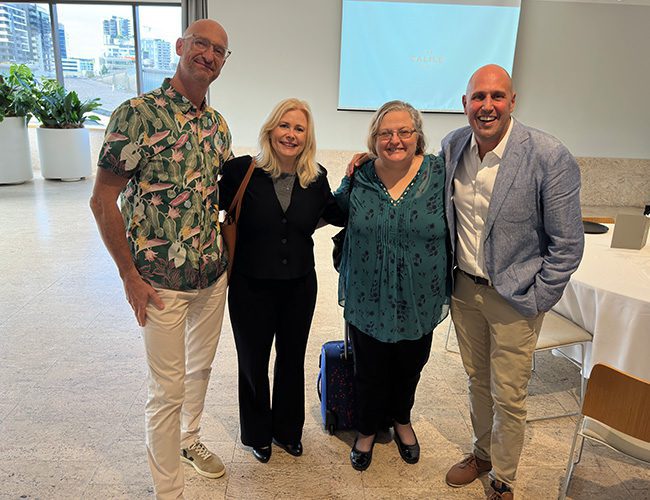
Asked where companies should start on their sustainable journey, Managing Director of TTC’s Touring Brands, Toni Ambler, said, “If you are working in a business that doesn’t have a blueprint or a game plan yet, starting with the United Nations 11 sustainability development goals is a great place to begin.”
“I think it’s also about having those difficult business conversations,” Said Ms Ambler. “If I look at the journey that TTC has been on, including creating our internal carbon fund, which while is not necessarily the right thing for the P&L right now, it is absolutely the right thing for us to do as a business to be able to get to where we need to in 2050.”
“Everybody can do something; that’s the most important thing,” urged Perry.
“My advice is to understand what is happening and what a good operator is, what are good practices, and who is progressing and who’s not. And then, with that knowledge, you can make your own choices of who to support in the industry and share them with your stakeholders and customers,” he said.
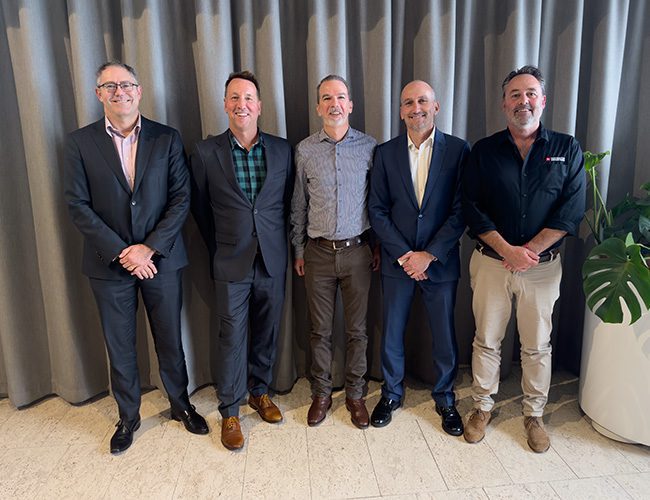
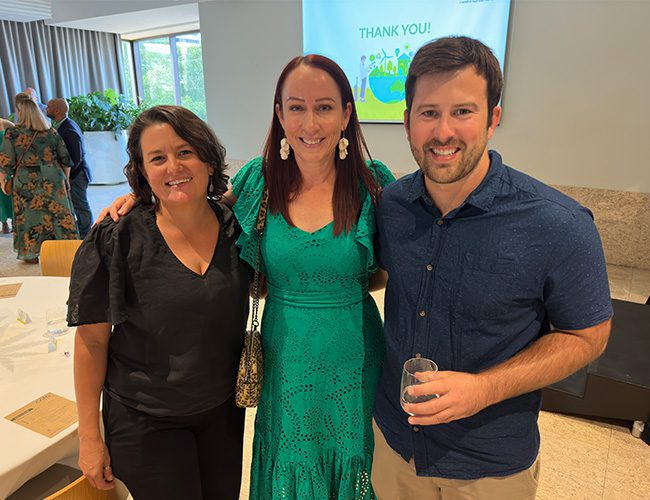
This much-needed event and forum would have undoubtedly left a mark on everyone who attended with plenty to think about and, hopefully, has given them invaluable insights that will help spark conversations to result in positive action and change.
We are all in this together, as we always say, so congratulations to CATO for a fantastic initiative and to all the panellists and attendees who took the time to make the event a resounding success.
For more information on CATO, head to www.cato.travel



